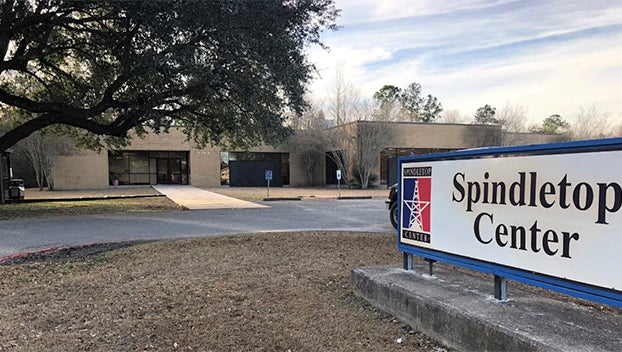High-dollar Paxton prosecution puts Collin County judge on hot seat
Published 10:07 am Thursday, October 27, 2016
By Jon Cassidy
watchdog.org
The Collin County Commissioners Court voted 5-0 Monday in support of a resolution to challenge excessive payments to the special prosecutors in the securities fraud case pending against Attorney General Ken Paxton.
But on Dec. 6, the commissioners’ attorney is due in an appellate court to argue the exact opposite: that the county should keep paying to prosecute Paxton, and that the courts should dismiss a taxpayer lawsuit meant to stop the million-dollar payments.
It’s not yet clear if the commission is changing course or simply muddled in its thinking on the case. What is clear is that County Judge Keith Self, who is something of a swing vote on the commission, is feeling the pressure, along with his colleagues who have voted not to contest the payments on previous occasions.
That pressure has gotten so intense that Self – or a close associate – is feeding stories to a gullible press that portray as scofflaws Republican lawmakers who question his methods.
The political dynamics in the Paxton case changed Oct. 7, when a federal judge confirmed the opinion of local conservatives: the case against Paxton is a non-starter, cobbled together from facts and allegations that don’t amount to a crime.
At the first opportunity, Federal District Judge Amos L. Mazzant III dismissed a fraud case the Securities and Exchange Commission had brought, ruling that “Paxton did not have a legal obligation to disclose his financial arrangement” with a company called Servergy.
Since federal securities law is almost identical to state law, and Mazzant is clear that these facts do not constitute fraud, then the one hope for the special prosecutors is to confuse a jury as successfully as they have confused much of the media.
For the last year and a half, newspapers and television have been reporting a dubious opinion as a legal fact. They report not just that Paxton “failed” to meet a disclosure requirement that doesn’t exist, they add their own spice to the accusation: Paxton “duped investors” or “plied them with misleading half-truths.”
The truth is that court-appointed attorneys Brian Wice, Kent Schaffer, and Nicole DeBorde are making hundreds of thousands of dollars testing out a brand-new interpretation of state law that appears dubious in light of the recent federal court ruling.
Is that something Collin County taxpayers should spend millions of dollars on? One judge says yes. The question for commissioners is whether another, higher judge might say no.
The issue has put Self in a difficult position. Self donated $5,000 to Paxton’s campaign in 2014, and Paxton and other conservatives have endorsed Self in the past.
But now, if Self takes any action that could end up helping Paxton, he risks being portrayed as a crony or meddler in the press. He is also said to be friends with the parents of Scott J. Becker, the district judge who decided to hire private attorneys at record-shattering rates rather than use prosecutors from a neighboring county for free.
While Self has tried to tell people that his hands are tied, the truth is that County Commissioners have the option to challenge a court order to pay the special prosecutors, as an Oct. 21 legal opinion obtained by Commissioner Susan Fletcher makes clear.
The commissioners were presented a separate opinion – one which they had not requested – from another firm, also dated Oct. 21, which argues that there is little ground for challenging the payments, and warns of “adverse consequences” for the commissioners if they “choose to ignore the court’s order.”
The county administrator ordered the second opinion, apparently at the request of one of his five bosses.
Dallas County District Judge George Gallagher has already ordered the payment of $369,914.75 in the case, and that amount doesn’t include any of the work done by the three lead prosecutors from early December 2015 to the present. Observers expect a final bill in the millions.
But state law might limit that payment to a few thousand dollars.
State law says that court-appointed prosecutors “shall receive compensation in the same amount and manner as an attorney appointed to represent an indigent person,” which would be $3,000 in this case.
Collin County has written local rules that say that fee schedule is to be followed “without exception,” but also may be ignored in “unusual circumstances.”
There are two legal issues that the courts could sort out. One is whether the local “unusual circumstances” exception is legal in the first place. If it is, then the second issue is what makes a fringe securities law case so special, other than the defendant’s station.
As the memo that Fletcher shared with the commission points out, “It is unclear why the Special Prosecutors would be permitted to so vastly exceed—by a factor of many thousands—the fee schedule here, and the District Court has made no findings or holdings in support of its decision to permit this excessive fee.”
Since Gallagher never cited any actual unusual circumstances, his order might be found unreasonable by an appeals court.
Aside from the issue of challenging the payments themselves, the commissioners have to decide what to do in a taxpayer lawsuit filed by Jeffory Blackard to stop the payments. Their attorney has already filed a brief arguing against Blackard, but the commissioners could reverse their position before oral arguments on Dec. 6.
Self had taken the public position that the decision wasn’t his to make, but had his bluff called.
“When the Commissioners Court receives a valid, uncontestable court order from a district judge, properly certified by the county auditor, I will obey the court order,” he wrote on Facebook on Oct. 11. “My personal opinions about the fees do not affect my upholding the law.”
But he was challenged on that post by Hiram Sasser, an attorney with the Liberty Institute, who pointed out the order was far from uncontestable.
“You have [an] obligation to appeal the order to the Dallas Court of Appeals. If the appellate court agrees, then it is debatable whether you must appeal further. But continuing to authorize the payment without appealing the questionable order is simply not defensible. And it should not matter who the person is being prosecuted.”
“Hiram, the county attorney will participate in this exact discussion before the 5th District Court of Appeals on December 6,” Self responded on Oct. 12.
“Yes — he will be arguing against following the law,” Sasser answered in what is known these days as a mic drop.
Sasser and several other conservatives showed up at the Commissioners Court meeting to argue for a resolution introduced by Commissioner Chris Hill.
That resolution declares that the commissioners will take “a careful review of future fee awards” as well as the “necessary steps to protect our opportunity to see appellate review of an order exceeding the local rules.” The commissioners “may” seek to take the legal steps recommended in the Fletcher memo, it concludes.
As pressure started to build on Self following the Oct. 7 ruling, he took steps to push back. Those steps resulted in an Oct. 21 story in the Dallas Morning News meant to embarrass conservative lawmakers who had been trying to talk Self into challenging the high legal fees.
In the Morning News’ presentation, “five Collin County lawmakers … discuss[ed] how to persuade County Judge Keith Self to violate a court order …”
Actually, the five lawmakers were getting up to speed on options for challenging Gallagher’s order.
One of those options might have sounded like lawlessness to Morning News reporter Lauren McGaughy, but if she had read her entire 59-page records packetclosely, she would have noticed that a 1975 attorney general opinion says that one proper avenue for contesting unreasonable attorney fees ordered by a district court is to “decline to pay and be subject to a mandamus or other proceeding.”
The Fletcher memo also lays out ways the county could contest the order without violating it, as does the resolution that Self himself voted to endorse Monday.
Just hours after Sasser called Self’s bluff on Facebook on Oct. 12, Collin County flack Tim Wyatt sent a public records request to several conservative state lawmakers asking for “copies of any and all emails and texts, sent and/or received by you, between Sept. 1, 2016, and Oct. 12, 2016, in which payments to special prosecutors in Collin County were mentioned or discussed.”
Those lawmakers had been texting not just each other, but with Self, trying to arrange a meeting. In fact, Sasser, state Rep. Jeff Leach, and former state Rep. Scott Turner all met with Self on Oct. 14 at 7:30 a.m.
Meanwhile, somebody at Collin County tipped Morning News reporter McGaughy about the package of text messages they were putting together for her, and she duly filed a request with the county on Oct. 14 for any records of communications between commissioners and state lawmakers.
Rather than contest the issue with the attorney general, the lawmakers sent Wyatt their texts, unredacted.
Wyatt sent an email to Self on Oct. 16 with all the responses as attachments, flagging him to the fact that the packet of records for McGaughy was now “Completed.”
The press office sent the records to McGaughy on Oct. 19.
In the text messages, several of the lawmakers say they’re trying to “help not hurt” Self.
“And let’s do this the right way,” Rep. Jodie Laubenberg wrote in one. “Keith is not the bad guy or is he?????”
Collin County Republicans will be forming opinions about that soon enough, either when the next invoice arrives, triggering legal options, or by Dec. 6, when the commissioners’ attorney is due to argue their opinion in the Blackard suit.
All five commissioners are Republicans. Fletcher has sided with Paxton consistently, and Hill frequently, while Self has voted with the other two commissioners, despite his stated concerns about the high legal fees.
Contact Jon Cassidy at jon@watchdog.org or @jpcassidy000.





